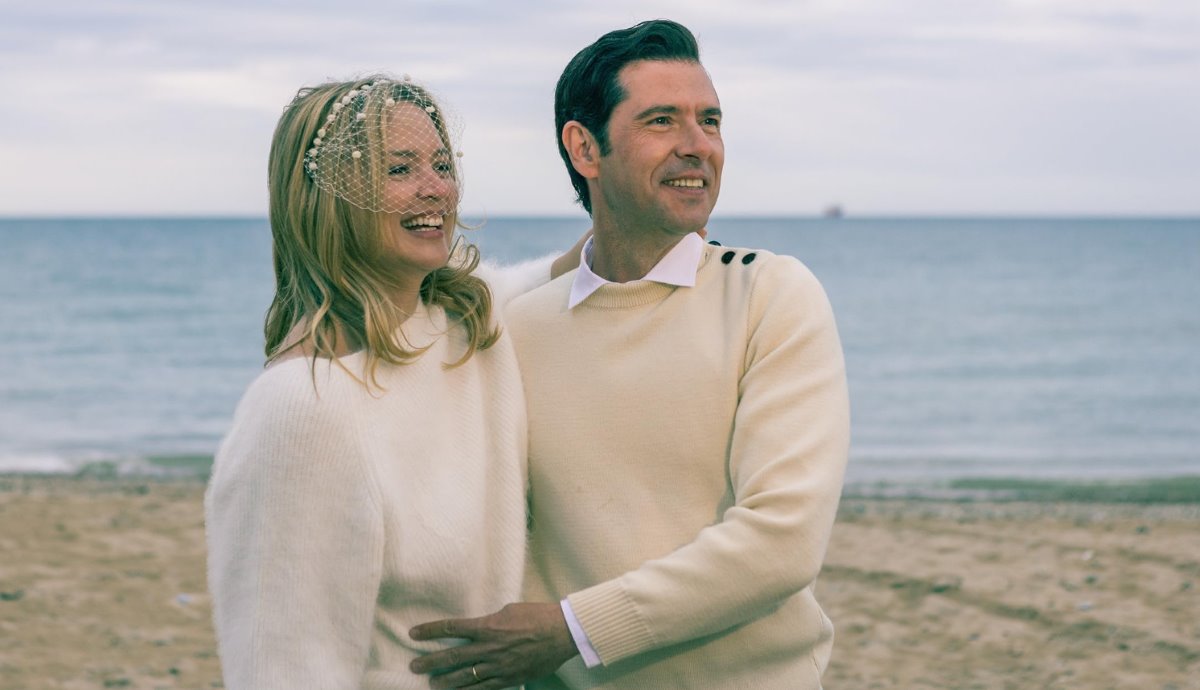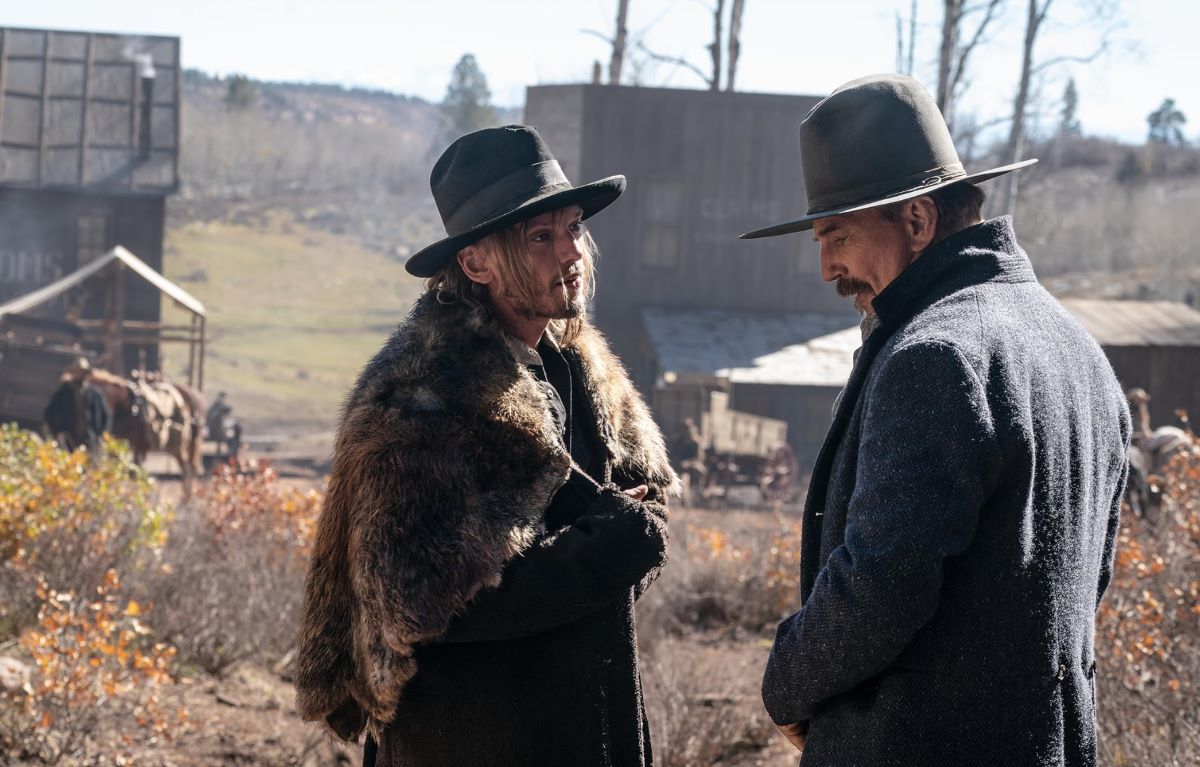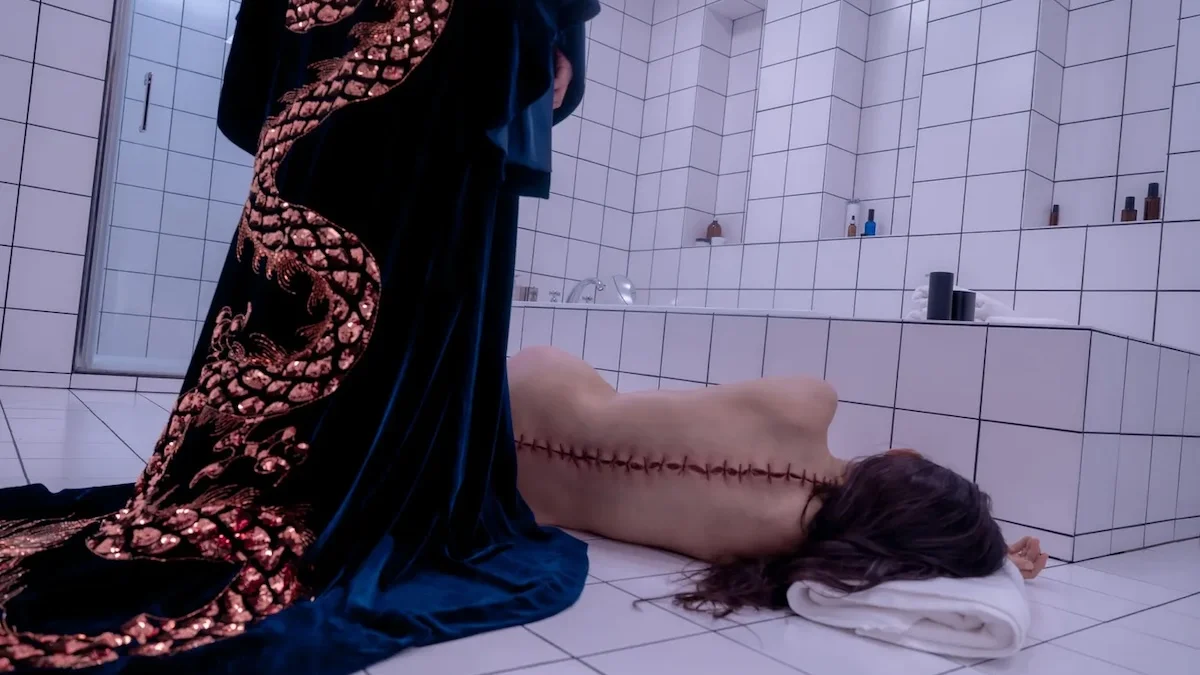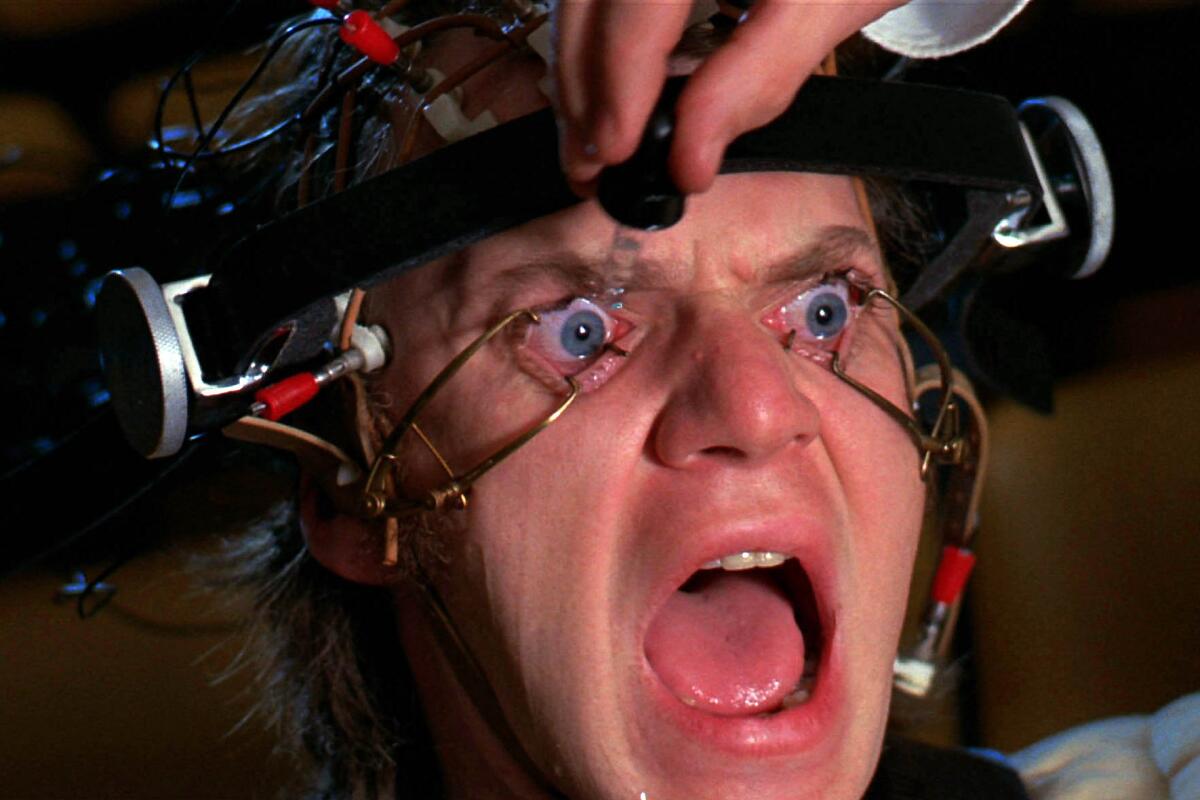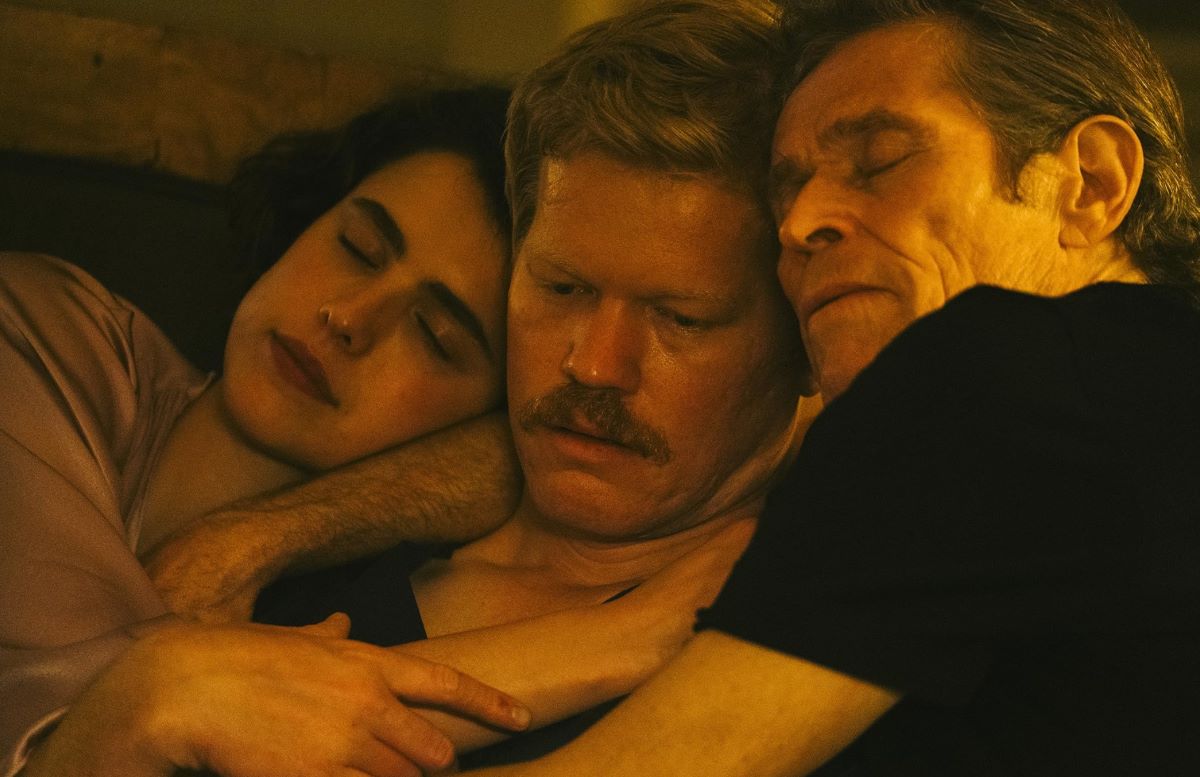Just the Two of Us (2023)
French: L’Amour et les Forêts
Directed by Valérie Donzelli
When Blanche crosses paths with Grégoire, she believes she has found the love of her life. Quickly, their relationship develops joyfully. The couple moves, Blanche distances herself from her family, and a new life begins for her. But day by day, she unexpectedly finds herself under the influence of a possessive and dangerous man…
* * *
Blanche teaches French at a school and lives in Normandy, near Caen, with the sea reflected in her eyes and a serene resignation about her single life. Blanche divides her life between her beloved job and a nearly symbiotic relationship with her twin sister, Rose, and their mother, always ready to encourage her daughters, barely looking up from the fabrics and embroidery she dedicates herself to. One evening, Rose, more outgoing and determined to pull Blanche out of her loneliness, drags her to a beach party with the threat/promise of meeting a so-called ideal man. At the party, Blanche, resistant to forced socialization and single conventions, meets an old schoolmate, Grégoire Lamoureux—a name that carries significant weight, almost like a promise—formerly overweight (“You look…” “slimmer!”) and now a charming man proud of his seductive skills. Blanche is swept away with an enthusiasm that even she finds excessive, perhaps adolescent. Grégoire presents himself as the perfect man: his suffocating yet gratifying attentions and eyes filled with desire give Blanche a sense of centrality that had somehow been taken from her. Blanche lets herself be carried away in this whirlwind of love, confronting the mild doubts of the women around her, who are both surprised and suspicious of this seductive avalanche. The domino effect is complete, the decisions made: Grégoire will take Blanche to Lorraine, between Metz and Nancy, far from the beloved sea and her close-knit family. Their future, already written, includes marriage, children, and a family life measured with a compass and pathological control that becomes ever more apparent.
Just the Two of Us by Valérie Donzelli unfolds slowly as a psychological thriller where the stakes are freedom—and, more broadly, the self-determination—of an accomplished and autonomous woman who succumbs to the fantasy of love. The original title (L’amour et les fôrets, like the Éric Reinhardt novel from which the film is adapted) better captures the film’s fundamental contradiction: the love (dreamed, idealized, perhaps only imagined) on one side and the forests, not only geographical, of a toxic relationship whose density is underestimated and whose side effects are ignored. Blanche is torn from the sun she loves so much to find herself alone and struggling with the quirks of an increasingly obsessive partner in the damp and inhospitable mist of an emotional landscape that offers no escape, only increasingly taxing and labyrinthine rules of engagement. Caught between saccharine tones—a reflection on the future sung in the car like in an impressionist musical by Jacques Demy—and melodramatic shifts, Just the Two of Us blends Hitchcockian influences (a Suspicion infused with the search for renewed female autonomy) with a call for awareness and a drive for realization.
Donzelli entrusts the face and body of Virginie Efira with Blanche’s initial indecision and subsequent determination. However, in the first part of the film, the sparse and subtle hints at Grégoire’s toxic personality convey a sense of disturbing duplicity, while the protagonist’s descent into hell is described in a tone that is more predictable, didactic, at times formulaic. Just the Two of Us comfortably fits into a discourse on an amour fou that degenerates into pathological obsession; Melvin Poupaud, with his charm that straddles the languid and the diabolical, portrays a character reminiscent of that in Woody Allen’s Coup de chance. Donzelli confirms her sharp sensitivity toward twisted love stories, setting aside her more fanciful and surreal vein to lend greater realistic force to this tale of passion, submission, and redemption. Blanche’s Courage proves to be a solid film, perhaps not always surprising, occasionally sluggish yet engaging, that nonetheless achieves its objective. And that is no small feat.
Federico Pedroni
Cineforum, May 6, 2024

